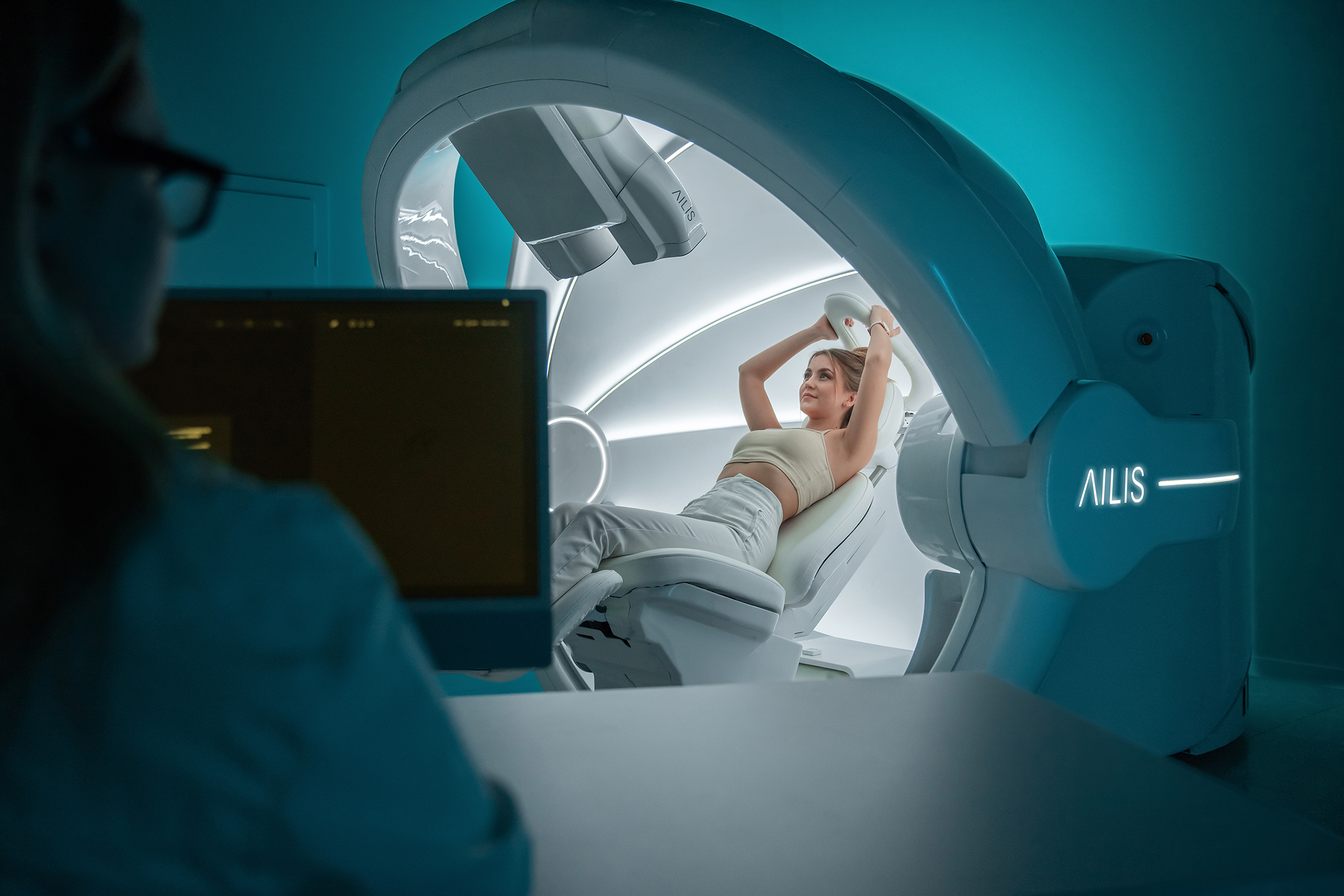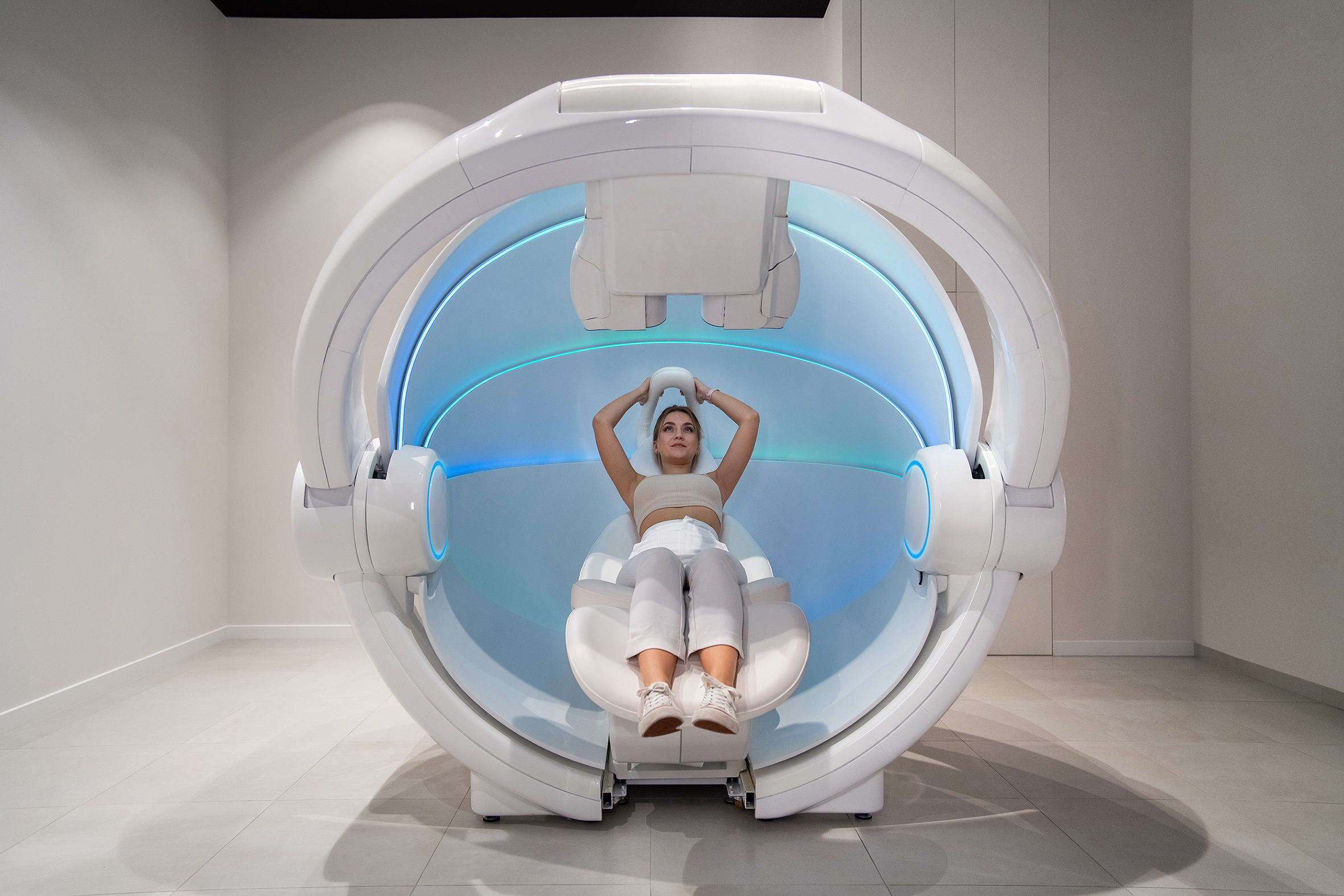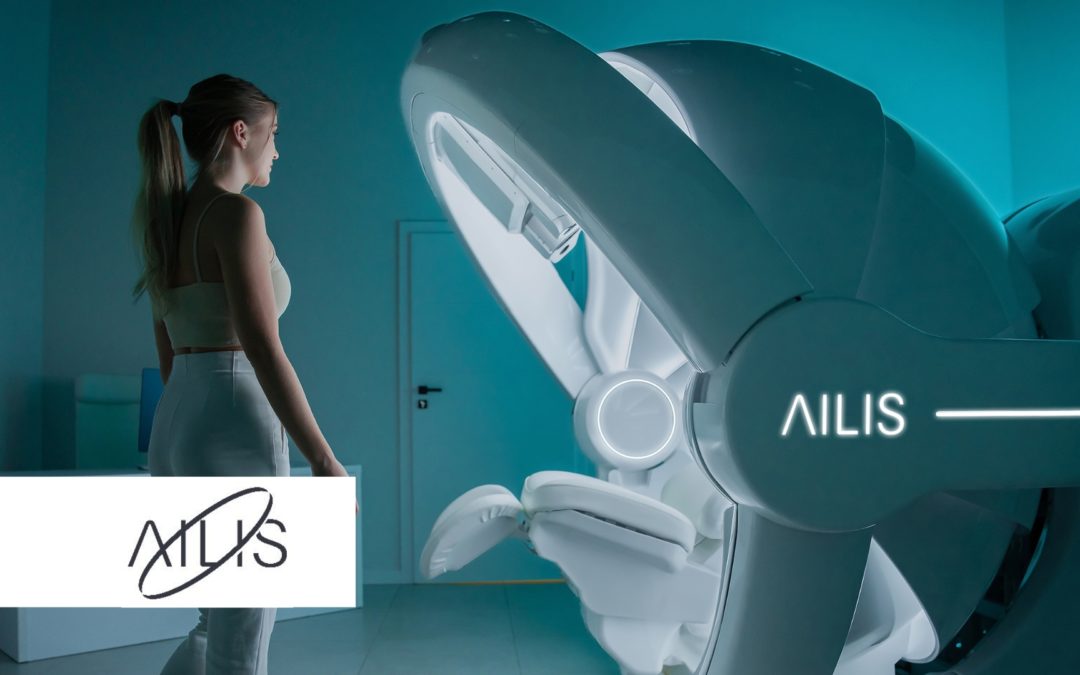This week, we are taking a closer look at Ailis, an innovative startup focusing on a crucial area of women’s health: early breast cancer diagnosis. Founded by Michał Matuszewski, the project arose from personal experiences with cancer within his family and is now dedicated to combating breast cancer. It offers not only an innovative method of early diagnosis but also a personalized approach to each patient.
Breast cancer in Poland holds an unfortunate top position among malignant tumors in women, accounting for approximately 37% of all cases. Data from the National Cancer Registry for 2020 is striking – it is diagnosed 67 times a day. Unfortunately, about one-third of patients do not survive. Poland also leads the Organisation for Economic Co-operation and Development (OECD) countries in terms of cancer-related mortality rates, with the percentage of breast cancer deaths increasing, unlike other European countries. Early diagnosis remains a challenge, with only one-third of eligible women undergoing mammography and one in five having a cytology examination.

Innovative Technology
Ailis is the result of over seven years of collaboration between outstanding scientists from the Gdańsk University of Technology, the Institute of Nuclear Physics of the Polish Academy of Sciences, biomedical engineering experts, oncologists, and programmers. Their goal was to combine parametric dynamic imaging technology with an analytical module based on artificial intelligence algorithms and telemedicine. It is the first diagnostic method that allows for the early detection of breast cancer and monitoring the breast condition of patients with different breast densities. Ailis has its own breast density algorithm that correlates with women’s breast densities, personalizing the diagnosis for each of them. The examination on this device is painless, comfortable, safe (no ionizing radiation is emitted), and takes only 5 minutes (including diagnosis takes 15 minutes). The system is practically self-operating and will be equipped with a digital avatar that (thanks to artificial intelligence) discusses the results with the patient and provides personalized risk information.
Project Development
Currently, the project is in the medical experiment phase, which aims to teach AI algorithms. The first Ailis center is operating in Krakow, and additional research centers will be launched in Gdańsk and Warsaw this year. Currently, women with suspected breast cancer are invited to participate in the research free of charge. Each patient also undergoes ultrasound, mammography, or possibly magnetic resonance imaging, depending on the doctor’s recommendations. Women with suspected breast cancer are provided with consultations with an experienced doctor specializing in breast cancer diagnosis and treatment – Dr. Mateusz Górski. In less than two months, nearly 1000 women have already signed up for the examinations.

Next Steps
Following clinical evaluation, Ailis awaits certification and, from the end of 2024, will begin the process of entering the Polish market and foreign markets. Discussions are currently underway with countries interested in implementing the system, such as Germany, the United Kingdom, and the United Arab Emirates. An innovative approach to test accessibility is offering them not in medical clinics but in shopping centers, creating a friendly environment for patients. The goal is to encourage women to undergo regular examinations and monitor their health to detect the disease at its earliest stage, when it is up to 99% curable.
Problem Solving
According to the World Health Organization, in 2020, 2.3 million new cases of breast cancer were diagnosed worldwide. It is estimated that by 2040, the number of cases will exceed 3 million annually. Every minute, one woman dies from this disease worldwide, while three learn about its existence. Nearly half of women worldwide have limited access to effective methods of early breast cancer diagnosis. Over the past twenty years, the number of breast cancers worldwide has increased by almost 100%. In some Asian regions, waiting for mammographic testing takes several years, while the WHO recommends a maximum wait time of three months. Delaying treatment even by a month increases the risk of death by 6-13%.
Late diagnosis contributes to alarming mortality rates, and the introduction of Ailis to the market may help address this problem. Key elements include the use of artificial intelligence, deep neural networks, and algorithms to analyze test results and create a personalized risk model for each patient. Personalized risk assessment is the future of healthcare, which currently relies mainly on population-based risk. Through a special application that guides women through monthly breast self-examinations step by step and allows patients to report suspicious changes for analysis, Ailis informs them about the need for earlier consultations with a doctor.
Health Tech of the Week
The Health Tech of the Week initiative highlights the importance of innovative solutions in the healthcare and technology fields. Ailis serves as an excellent example of the Health Tech revolution in women’s healthcare, going beyond current medical standards and changing the approach to breast cancer diagnosis while increasing women’s awareness of their health.
If you have an innovative project in the field of new technologies and medicine or would like to recommend an interesting solution, please contact us at: [email protected].
Health Tech of the Week: For Mothers and Children – 10 Startups Aiming to Revolutionize Healthcare
The "Health Tech of the Week" initiative was created to promote interesting Polish and international solutions that have the potential to...
The Competition „Scratches Their Heads” – What Sets Polish MedTech Companies Apart
I invite you to read the second part of the conversation with Aleksander Kłósek from the Venture Capital fund YouNick Mint. This time, the expert...
Health Tech of the Week: When Team Competence Matters More Than the Idea: What MedTechs Do Investors Choose?
So far in our Health Tech of the Week series, I have focused on showcasing innovative Polish startups operating in the medical industry. In the...




